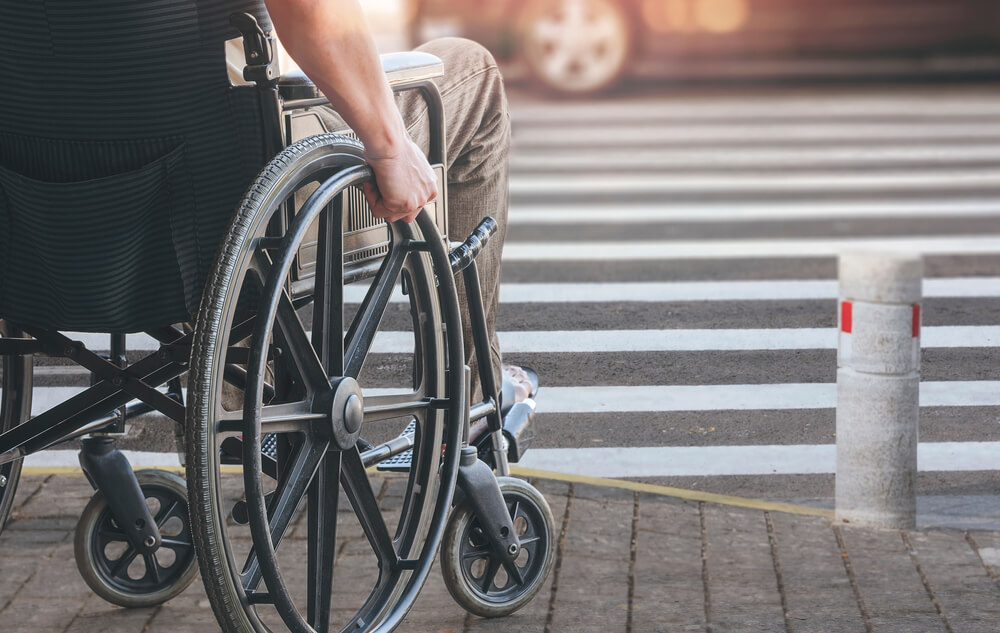Released Data Shows Online Harassment And Abuse Of Disabled People On The Rise In The U.K.

The rise in online hate crimes against disabled people has prompted calls from disability campaigners for companies such as Twitter and Facebook to take online disability hate crime more seriously and do more to protect all users. If you are affected by online harassment or anything else touched on within this news story, follow the links throughout the article to our various support services or click on the blue logo icon at the bottom right of the screen to start using Cybersmile Assistant, our smart AI support assistant.
Recently released data from Police services in the U.K. have revealed a sharp increase in online abuse and harassment targeted at disabled children and their families. Figures show that reported hate crimes against disabled people in 2017/18 had increased by over one third compared to 2016/17, and that reported incidents involving children had grown even faster.
“We are still concerned that disability hate crime is significantly under-reported by victims, and that is why the government is working with community groups to raise awareness of how to report it amongst, disabled people, their carers and families.”
Spokesperson, U.K. Home Office
In a report based on the publicly available Police figures by U.K. disability welfare charity Leonard Cheshire, the number of families with disabled children reporting abuse online as well as in public had risen by 33%. However, the Home Office said that the rise was due to improvements to reporting processes, and the fact that more victims are now willing to come forward and speak out.
The police figures also echo findings from surveys carried out by disabled charities, including one carried out by the Disabled Children’s Partnership of nearly 2,700 parents of disabled children in the U.K. – which confirmed online hate crime and abuse was commonplace.
“Families often feel like they can’t go into busy public spaces or post images onto social media for fear of being publicly shamed or having to be submitted to people telling them that their child must lack quality of life because of their disability.”
Amanda Batten, Chair, Disabled Children’s Partnership
The rise in online hate crimes against disabled people has prompted calls from disability campaigners for companies such as Twitter and Facebook to take online disability hate crime more seriously and protect all users. They are also supporting British MP’s recommendations for Government and social media companies to directly consult with disabled people on digital strategy and hate crime law so that the internet becomes a less threatening and more inclusive place for everybody.
If you are affected by any kind of online negativity, we can help you. Visit our Cyberbullying Help Center or click on the blue logo icon at the bottom right of the screen to open Cybersmile Assistant, our smart AI support assistant. For further information about Cybersmile and the work we do, please explore the following suggestions:
- Who Are Cybersmile?
- People We’ve Helped
- The Cybersmile Conversation (Allow a few seconds to load, but worth the wait!)
- World Leaders And Technology Companies Pledge To Fight Online Hate Speech
- Cybersmile Campaigns
- What We Do
- 12-Year-Old Cyberbullying Victim Posted RIP On Social Media Before Taking Her Own Life
- Cybersmile And Rimmel Launch Groundbreaking AI Support Assistant
- Stop Cyberbullying Day 2018 Highlights
- Cybersmile Launch Interactive Digital Civility Learning Platform
- Understanding Social Media And Mental Health
- Cybersmile Wins Gold At Cannes Lions 2018 For Body Positivity Campaign
- Corporate Partnership Program
- Cybersmile Newsroom
- Become A Cybersmile Sustainer
Share your thoughts about this data by contacting us or tweet us @CybersmileHQ.

